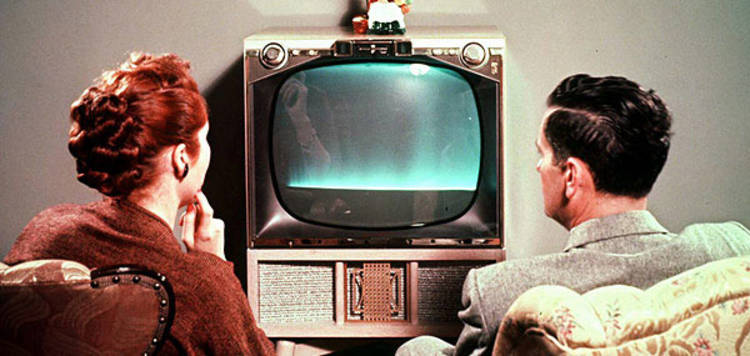


Recently, Italian philosopher and University of Florence professor, Sergio Givone, wrote a front cover story for Roman daily Il Messaggero, stating that television is not society’s mirror, but rather an instrument to shape it. With the speed of light, I immediately (technically, immediately is faster that the speed of light) e-mailed a letter to the editor, which was promptly ignored.
Even though I’m a contributor to another section of the same paper, in Italy, one cannot challenge a front-cover story, especially one written by a noted university professor, even if, as in this case, the pundit is out of his element (i.e., television). Only if the dissenting note had been written by an even more noteworthy university professor would the letter have been accepted for publication. After all, in the Italian media world, hierarchy must be respected if not revered, and what I did was irreverent!
In that e-mail, obviously destined to end up where it belonged (i.e., a spam folder), my position was that television not only trails society, but follows it so closely as to be a slave of society’s own rules and customs. Indeed, to be successful or even accepted, television has to take into consideration when people leave their homes to go to work, when they come back, when they go to the movies or to restaurants, when they come back from vacations and even when they go to the toilets. Television follows –– it doesn’t lead –– and what the aforementioned Italian philosopher has failed to analyze is that television reflects society –– otherwise it would lose its followers.
Imagine if television programmed its key shows when potential viewers were out of their homes, stuck in their cars or on commuter trains? Picture a TV network showing a rugby match in the afternoon when housewives are home. And all this is just for the sake of shaping people’s habits!
Society’s malaise doesn’t have to be linked to television. Television should not the scapegoat. I’d venture to say that the social, political and economic problems we’re now facing are mainly due to the inadequate, unresponsive educational system and, especially to the money-hungry and power-grabbing university system, which, ultimately, failed to spew out valid managers, politicians, regulators and public servants.
In the U.S., there are accidental firearm deaths and shoot-outs not because of television, but because people can keep rifles and pistols at arm’s length.
Michael Suman, a professor at the Department of Communication Studies at the University of California at Los Angeles, has analyzed the effects of violence on television. Suman, who has taught in Japan, Korea and China, said: “I would never want to say that the mass media does not have a powerful influence and effect on people. It does. But it is much too simplistic just to blame all of this on TV. The media in Japan is more violent than it is in the U.S. [but] if you look at Japanese society, the rates of violent crime are much lower than they are in the U.S.”
In France, Nicolas Sarkozy was elected president but not because of television coverage (after all, TV stations over there favored his opponent, the charming Segolene Royal). The same thing happened in Italy. Despite the fact that former Italian prime minister Silvio Berlusconi owns three TV networks and, when he was in power, reportedly, influenced the three main public TV networks, he lost the 2006 election to former bureaucrat Romano Prodi.
On my side, I’ve got also a comment from MIT professor David Thorburn, who in an interview stated that, for example, the characters of the TV series Seinfeld, were mirroring [not creating, shaping or influencing, mind you] a society that was selfish, nasty, greedy and self-absorbed. “The narcissism of the era is simply reflected in the show,” he’s quoted as saying.
Certainly, television is influential. After all in the U.S. there are more TV sets than toilets! However, only when people at large are ready to accept, for example, changing gender roles, with television shows dealing with that subject, will be accepted and thus popular.
In his book “Everything Bad Is Good For You,” American author Steven Johnson even argues that, “Popular culture has…grown more complex and intellectually challenging over the past 30 years…the popular media is steadily…making our minds sharper, as we soak in entertainment usually dismissed as so much low-brow fluff.”
Now, on one level, this could be interpreted as proof that TV shapes society, making it smarter. But it also dismisses the tone of the Italian professor’s negative premise that society is challenged because television –– which shapes it –– is also challenged. On the other hand, Johnson could also be stating that society has changed and television has followed it.
Source URL: http://test.iitaly.org/magazine/focus/op-eds/article/television-open-field-pundits
Links
[1] http://test.iitaly.org/files/1473television1205912282jpg